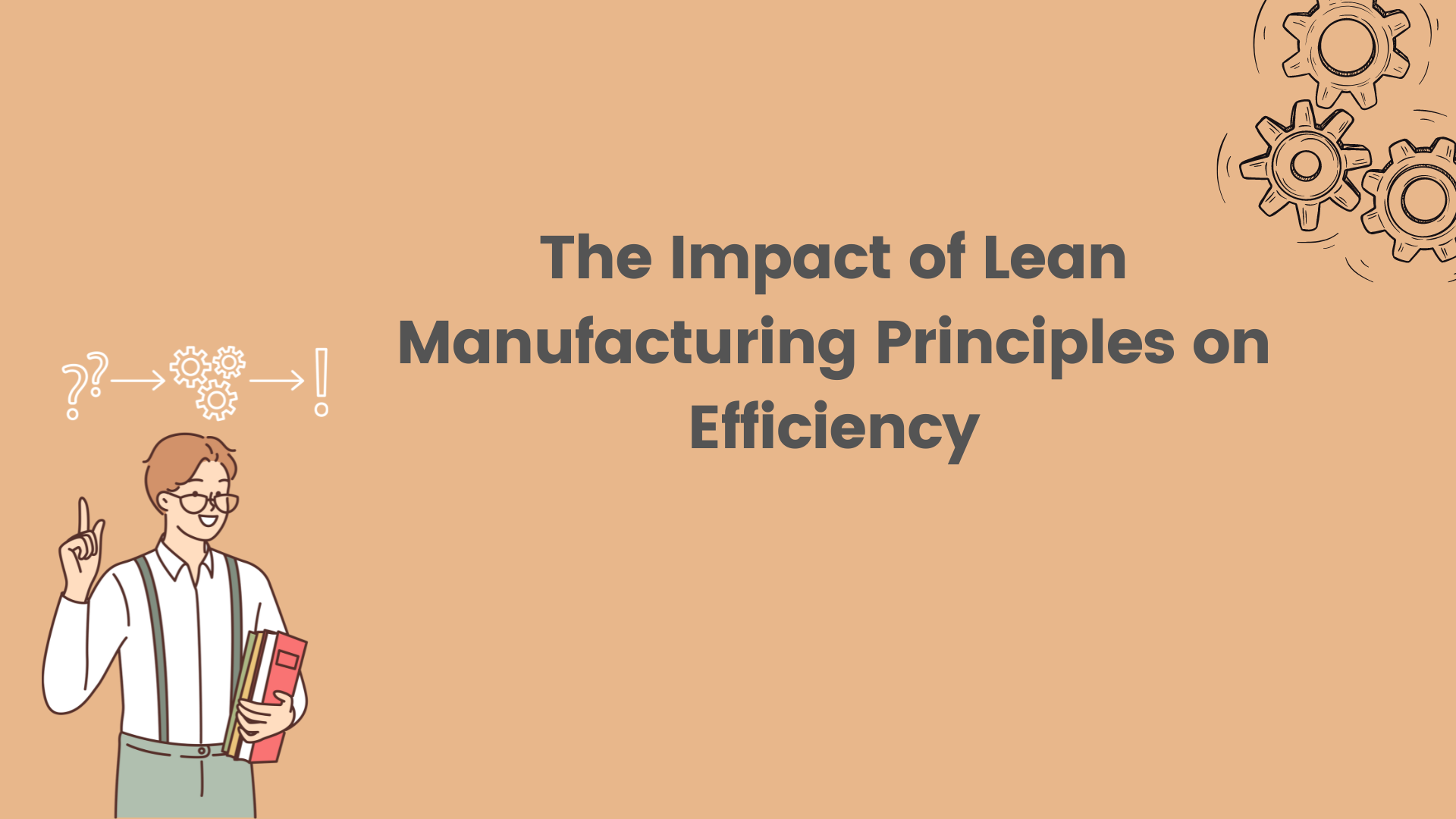In today’s fast-paced and competitive business environment, efficiency is key to success. Companies are constantly seeking ways to streamline their operations, reduce waste, and improve productivity. One approach that has gained widespread recognition for its effectiveness in achieving these goals is lean manufacturing. Originating from the Toyota Production System (TPS), lean principles have revolutionized the way businesses operate across industries. Let’s delve into the impact of lean manufacturing principles on efficiency and how they have transformed the manufacturing landscape.
Understanding Lean Manufacturing
At its core, lean manufacturing is about maximizing value while minimizing waste. It emphasizes continuous improvement, employee involvement, and the relentless pursuit of perfection. Lean principles focus on eliminating any activities or processes that do not add value to the end product or service, thereby optimizing efficiency and reducing costs. By emphasizing the importance of efficiency, quality, and flexibility, lean manufacturing enables companies to meet customer demands more effectively while staying competitive in the market.
Streamlining Processes
One of the primary impacts of lean manufacturing is the streamlining of processes. By analyzing each step of the production process and identifying inefficiencies, companies can eliminate bottlenecks, reduce lead times, and improve overall workflow. Lean techniques such as value stream mapping and just-in-time (JIT) production enable companies to identify and eliminate waste, whether it be excess inventory, unnecessary movement, or overproduction. This results in smoother operations, shorter production cycles, and ultimately, increased efficiency.
Empowering Employees
Another key aspect of lean manufacturing is empowering employees to contribute to process improvement actively. Unlike traditional top-down management approaches, lean principles emphasize the importance of employee involvement and engagement. Employees are encouraged to identify problems, propose solutions, and participate in decision-making processes. This not only fosters a culture of continuous improvement but also taps into the collective knowledge and expertise of the workforce. As a result, companies can harness the full potential of their employees to drive efficiency and innovation at all levels of the organization.
Enhancing Quality
Quality is a cornerstone of lean manufacturing, and it goes hand in hand with efficiency. By focusing on eliminating defects and errors at the source, companies can reduce rework, scrap, and customer complaints. Lean techniques such as total quality management (TQM) and mistake-proofing (poka-yoke) are instrumental in ensuring that products meet or exceed customer expectations consistently. By embedding quality into every aspect of the production process, companies can deliver products that are not only efficient but also reliable and of the highest standard.
Achieving Continuous Improvement
Perhaps the most significant impact of lean manufacturing is its emphasis on continuous improvement. Lean is not a one-time initiative but rather a mindset and a journey towards perfection. Companies that embrace lean principles are committed to constantly seeking ways to improve processes, reduce waste, and enhance efficiency. Through practices such as kaizen (continuous improvement) and gemba walks (on-site observation), companies can identify opportunities for optimization and implement changes incrementally. This culture of continuous improvement enables companies to stay ahead of the competition and adapt to changing market dynamics effectively.
Conclusion
In conclusion, the impact of lean manufacturing principles on efficiency cannot be overstated. By focusing on value, eliminating waste, empowering employees, enhancing quality, and embracing continuous improvement, companies can achieve significant gains in productivity and competitiveness. Lean manufacturing has transformed the way businesses operate, enabling them to deliver higher-quality products, reduce costs, and respond more quickly to customer demands. As companies continue to embrace lean principles, the potential for further improvements in efficiency and effectiveness is limitless, ensuring their success in an ever-evolving marketplace.
In today’s fast-paced and competitive business environment, efficiency is key to success. Companies are constantly seeking ways to streamline their operations, reduce waste, and improve productivity. One approach that has gained widespread recognition for its effectiveness in achieving these goals is lean manufacturing. Originating from the Toyota Production System (TPS), lean principles have revolutionized the way businesses operate across industries. Let’s delve into the impact of lean manufacturing principles on efficiency and how they have transformed the manufacturing landscape.









